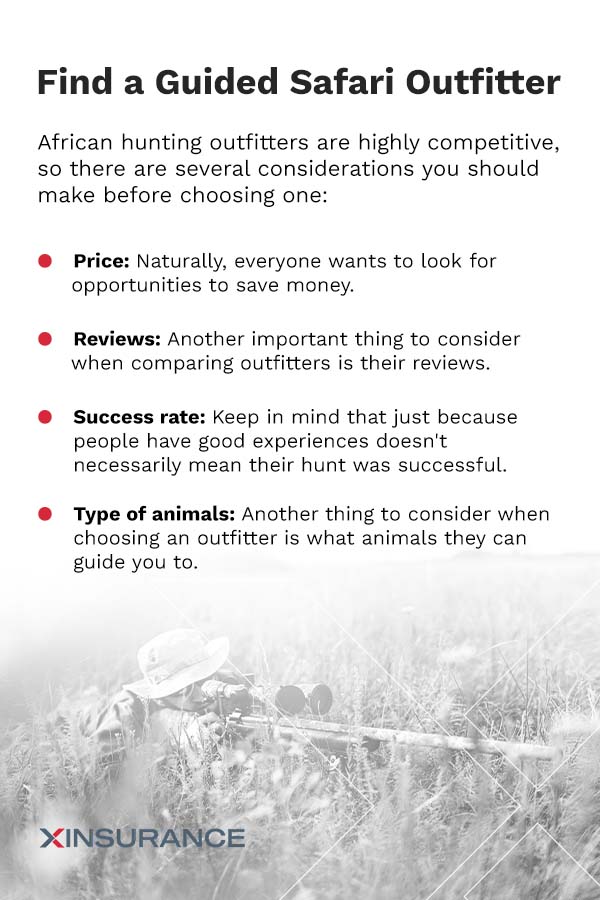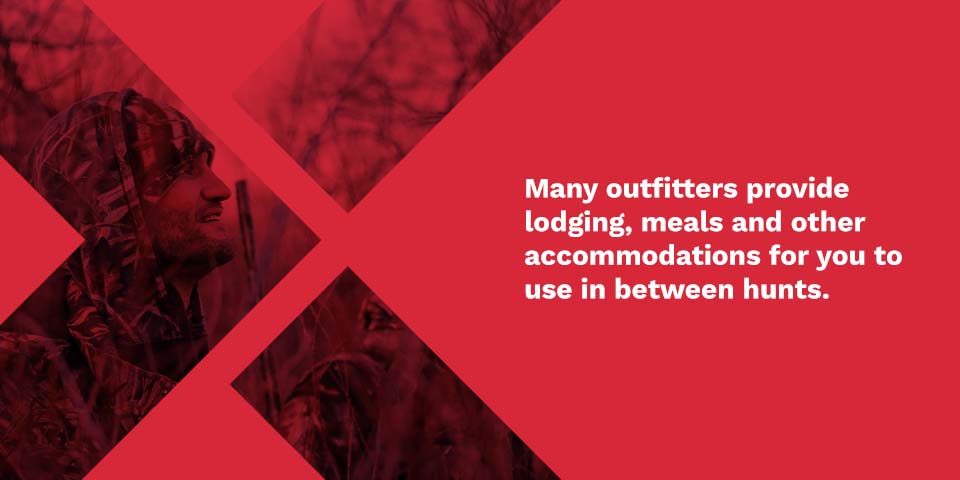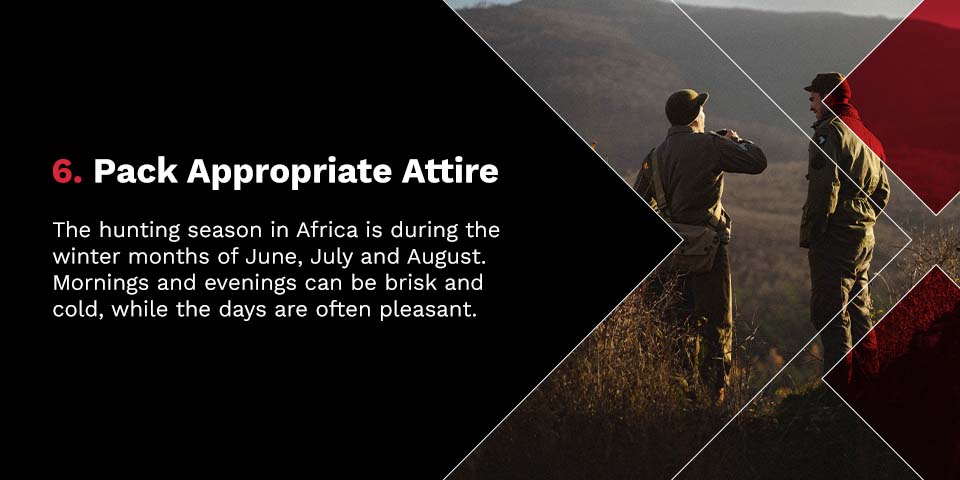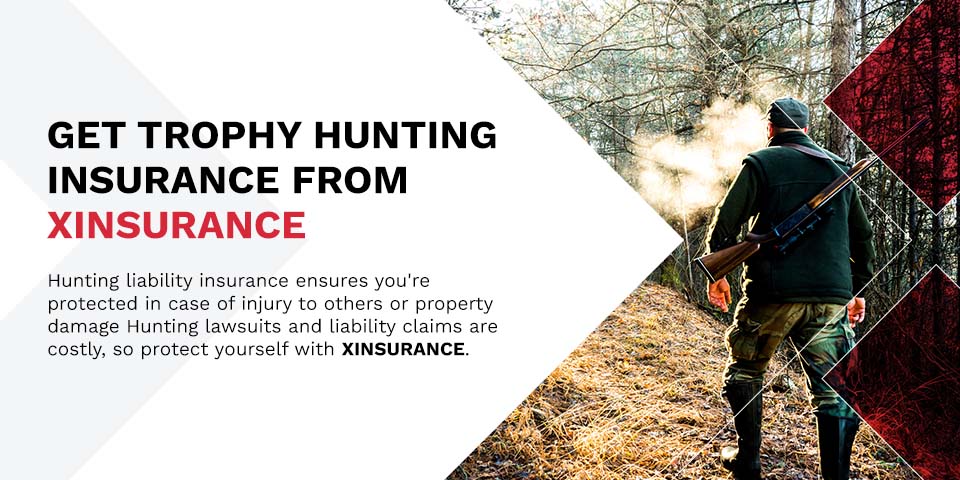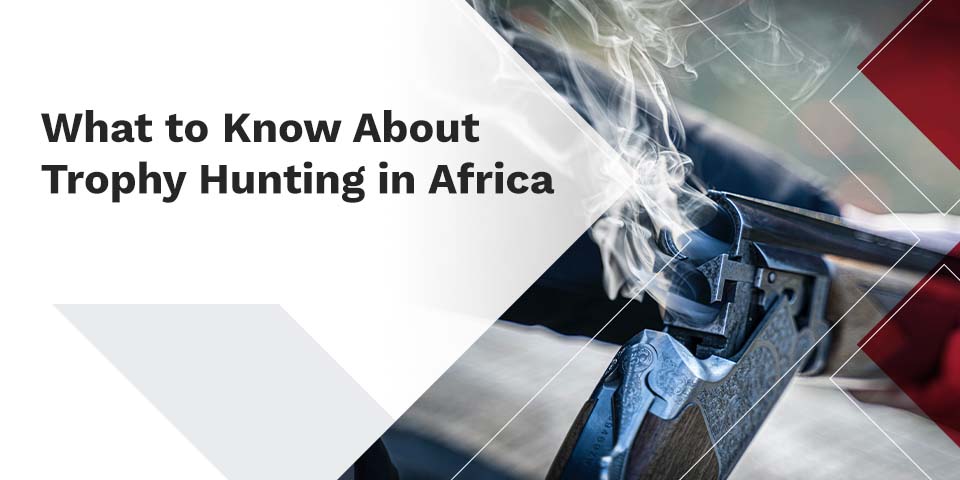
What to Know About Trophy Hunting in Africa
Avid hunters look for chances to explore new land and hunt new animals. An African hunt offers a unique experience for those looking to grow their trophy collection. Keep in mind, however, that this isn’t your average hunt — you’ll have to prepare in different ways than normal. Learn about trophy hunting in Africa and how you can prepare for a successful trip.
About Trophy Hunting in Africa
Trophy hunting is a booming industry in Africa. Hunters from all over the world travel to Africa to hunt animals they’ve carefully selected ahead of time. Lions, elephants, rhinos and buffalo are just the start of potential species to be hunted. Trophy hunting in Africa surely has its pros and cons. While hunting these animals is legal with the right licensure, trophy hunting is an extremely controversial sport. Some people believe it to be unethical, especially because it’s common for trophy hunters to seek endangered species.
With strict government regulations in place, trophy hunting for endangered species is legal. For many species, there are a limited number of licenses issued to restrict the number of animals killed. Many argue that trophy hunting is actually a conservation effort, as it helps some species recover while preventing others from growing too rapidly. Additionally, because African trophy hunters tend to spend extensive amounts of money to ensure they get the trophies they came for, a lot of revenue goes into this industry and the areas being hunted.
To ensure trophy hunters are abiding by laws and regulations and can actually find the animals they’re hunting, it’s typically recommended to go on guided hunts with professional hunters. Professional guides are often natives, and they conduct tens of hundreds of hunts per season. This means they know what to look for and can help your hunt be more successful.
How to Prepare for a Trophy Hunting Trip
When planning a trophy hunting trip, preparation is of the utmost importance. Because you’re spending more money on a hunt than normal, thorough research and preparation is necessary to ensure you’re getting what you pay for. For many hunters, an African hunt is a once-in-a-lifetime experience. Whether you’re embarking on your first trophy hunt or returning for another chance, be sure to prepare as much as possible.
Do Your Research
One of the most important parts of any hunting trip preparation is doing research. There are hundreds of places to hunt and even more animals to be hunted. Where do you want to go, and what do you want to hunt for? If you’re looking for a specific trophy, as many trophy hunters are, be sure to research if the animal is unique to a certain area in Africa, as this will help narrow your search. Once you start narrowing your search, you can start looking at other more detailed aspects.
For example, get to know the land and the animals as much as possible before you get there. Even if you’re a seasoned hunter, the landscape, climate and animals can vary significantly from what you’re used to. Look for stories from other hunters who have trophy hunted in the area to pick up on information from their experiences and get an idea of what to expect.
Find a Guided Safari Outfitter
A large portion of your research will likely be directed toward finding the right safari outfitter for your hunt. African hunting outfitters are highly competitive, so there are several considerations you should make before choosing one:
- Price: Naturally, everyone wants to look for opportunities to save money. However, it’s best to be wary of prices that seem too good to be true, because most often they are. When one outfitter is significantly cheaper than the rest, there’s usually a reason for it. Either you’ll get a below-average experience, or you’ll get hit with hidden fees and additional costs. In many cases, you can expect to get what you pay for, meaning a more cost-effective option may actually end up being a poor and unprofessional experience.
- Reviews: Another important thing to consider when comparing outfitters is their reviews. Look for hunters’ past experiences. If there are a lot of negative reviews or poor experiences, take this as a red flag. If the outfitter has good reviews and many people speak highly of their experiences with the outfitter, this is a more promising sign that you could have a good hunting experience as well.
- Success rate: Keep in mind that just because people have good experiences doesn’t necessarily mean their hunt was successful. While it’s nearly impossible to guarantee success on a wild hunt, you should look for high success rates so you’re giving yourself the best chance at bringing home a trophy.
- Type of animals: Another thing to consider when choosing an outfitter is what animals they can guide you to. Like we said earlier, some animals are location-specific. You’ll want to keep this in mind when searching for outfitters, especially if you’re out to find a specific trophy.
It’s important to take your time researching guides and outfitters so you can choose the best one for your hunting trip instead of just choosing the cheapest option.
Ask Many Questions
When you contact an outfitter, be sure to ask as many questions as possible to get a better sense of how they operate and what to expect. For example, ask about transportation to and from the airport, whether they have guns and ammo available for use and how they handle shipping trophies back to the successful hunter. Get as many trophy hunting facts from the outfitter as possible. This can help you plan what to bring when the time comes.
Asking questions during the hunt is also recommended because it helps you learn as much as possible.
Sharpen Your Skills
Outside of research and all the administrative planning, you should work on sharpening your skills and physically and mentally preparing. Abilities you should sharpen include sighting using your gun and scopes and practicing shooting. Physical preparation is often necessary because much of African trophy hunting involves stalking the animals. Stalking can involve several miles of walking and hiking each day, and while this can be tiring for anyone, getting yourself into shape can certainly help.
Mental preparation is also important because you avoid setting expectations that are far too high. Animals are unpredictable and hunts won’t always go as planned. While this can surely be disappointing, appreciate the experience and save the knowledge you gained for when you return for another shot!
Know What to Expect in Terms of Travel and Lodging
Many outfitters provide lodging, meals and other accommodations for you to use in between hunts. Confirm what’s included in your price and whether you need to pay extra for accommodations — or if you’ll have to find your own. You’ll also need to consider what preparations are necessary for traveling internationally with a gun or other weapon.
Be sure to obtain any permits required if you’re bringing your rifle with you. When you speak with the outfitter, you’ll also want to find out if they provide transportation or if you’ll need to rent a car or take a bus.
8 Tips for a Successful African Trophy Hunt
While much about your African trophy hunt will be left up to your guide and the fate of the animals, you can do several things to help make your trip more successful. Consider these tips for a successful African trophy hunting trip.
1. Listen to Your Guide
One of the best things you can do on your hunt is listen to your guide. The professional hunters who work as outfitting guides are experienced and often lead more hunts in one season than many normal hunters will go on in their lifetime. It’s important to trust what they say and listen to their advice.
You may consider yourself to be an above-average hunter at home, but this is new terrain. Even though you did your fair share of internet research, it’s safe to assume your guide knows best.
2. Practice Shooting With Sticks
In many places, including North America, it’s possible to lie on the ground, kneel, set up in a tree stand or prop against a tree to make a good shot. Because of the thick African bush, this isn’t an option for hunters. If you’ve never shot off a shooting stick before, it’s best to practice as much as you can beforehand because this tool is likely what you’ll be using on your hunt. The last thing you want is to miss a shot because you didn’t practice with a stick.
Be sure to practice balancing your rifle and adjusting the height and direction of the stick. Having good shooting stick techniques can set you up for a more successful shot.
3. Take Unplanned Opportunities
While you’ll likely travel to Africa with a specific list of trophies in mind, one benefit of trophy hunting in Africa is being able to take trophies you hadn’t originally planned for. Many African hunts require a trophy fee to be paid for each animal you took. Many hunters budget for the trophies they want most, though if you have the opportunity to take an unplanned trophy, do it. Some chances only present themselves once, and you may regret not taking a shot when you had the possibility.
Make the most of your African hunting experience and take the unplanned opportunities.
4. Use a Gun You’re Comfortable With
For many hunters, trophy hunting in Africa is a once-in-a-lifetime trip. Out of excitement, you may feel inclined to purchase a new gun to go all out with. While it’s tempting to buy a big, powerful gun, remember this tip. Bigger isn’t always better, and you could very well take an animal just fine with your deer-hunting rifle. If you’re hunting large game animals, a larger gun will likely be needed, though you may not have to go as over the top as you think.
Talk to the hunting outfitter and professional guide about what gun will be best. If possible, practice with it before heading out. It’s always best to hunt with a rifle you’re comfortable with instead of a gun you’re hesitant of handling. You’ll feel much more confident making shots when you’re comfortable.
5. Choose the Right Bullets
Choosing the right bullets is just as important as being comfortable with your gun. In the United States, hunters often choose bullets based on accuracy, though in Africa, lethal penetration is much more crucial. Most African animals have thicker skin and fur than the ones you’re used to hunting. You’ll need a bullet that will puncture the tough skin and ideally leave an exit wound so there’s more blood to track. Before purchasing any ammo, be sure it will properly shoot through your rifle.
6. Pack Appropriate Attire
One of the biggest misconceptions about trophy hunting in Africa is that the temperature will be hot. The hunting season in Africa is during the winter months of June, July and August. Mornings and evenings can be brisk and cold, while the days are often pleasant. It’s important to pack the appropriate clothes and dress in layers so you can adjust as the day warms up. You’ll also want to consider how loud your clothes are when walking through brush and try to keep the colors to neutral earth tones.
7. Study the Biology of African Animals
African animals have different anatomies than ones in other areas of the world. For example, many animals have humps over their shoulders, and their spines and vital organs tend to sit much lower in the body. Keep this in mind when making your shot. The position of a lung shot on a deer may be too high to hit vitals on an African buffalo. Get an idea of where you should be aiming for the most lethal shot.
8. Be Certain You Have a Good Shot
Your guide will often encourage you to make certain shots when they know you’re in a good position to do so. However, it’s important to remember that you should never take a shot unless you’re certain you can make a good one. If you only injure an animal, it can put you and your team in a dangerous situation. Plus, you typically have to pay trophy fees if you have a blood trail — even if you never recover the animal. Always be confident in the shot before you take it.
Get Trophy Hunting Insurance From XINSURANCE
While trophy hunting in Africa, safety should be a big consideration and a large part of your planning. Before heading out on your hunt, plan for the worst with trophy hunting insurance from XINSURANCE. Despite practicing safe hunting habits and listening to the directions of your hunting guide, accidents can still happen. Hunting liability insurance ensures you’re protected in case of injury to others or property damage.
For more information about hunting insurance and more, contact our team today!
Disclaimer: We can provide liability coverage solutions for foreign trips if the insured’s (individual or business entity) primary location is in the U.S., and suits must be brought back into the U.S.

Rick J. Lindsey hails from Salt Lake City, Utah. He began working in the mailroom of his father’s Salt Lake City insurance firm, getting his introduction to the business that became his lifelong career. Rick J. Lindsey quickly rose through the ranks while working in nearly every imaginable insurance industry job. As an entrepreneur, specialty lines underwriter, claims specialist, risk manager, and a licensed surplus lines broker, Rick J. Lindsey is highly skilled in all levels of leadership and execution. As he progressed on his career path, Rick J. Lindsey discovered an urgent need for insurers willing to write policies for high-risk individuals and businesses. He was frequently frustrated that he could not provide the liability protection these entities desperately needed to safeguard their assets. He also formed the belief that insurance companies acted too quickly to settle frivolous claims. Rick J. Lindsey decided to try a different approach. He started an insurance company and became the newly formed entity’s CEO. This opportunity has enabled Rick J. Lindsey to fill a void in the market and provide a valuable service to businesses, individuals, and insurance agents who write high-risk business. XINSURANCE also specializes in helping individuals and businesses who live a lifestyle or participate in activities that make them difficult for traditional carriers to insure. If you’ve been denied, non-renewed, or canceled coverage, don’t give up quite yet. Chances are XINSURANCE can help.

